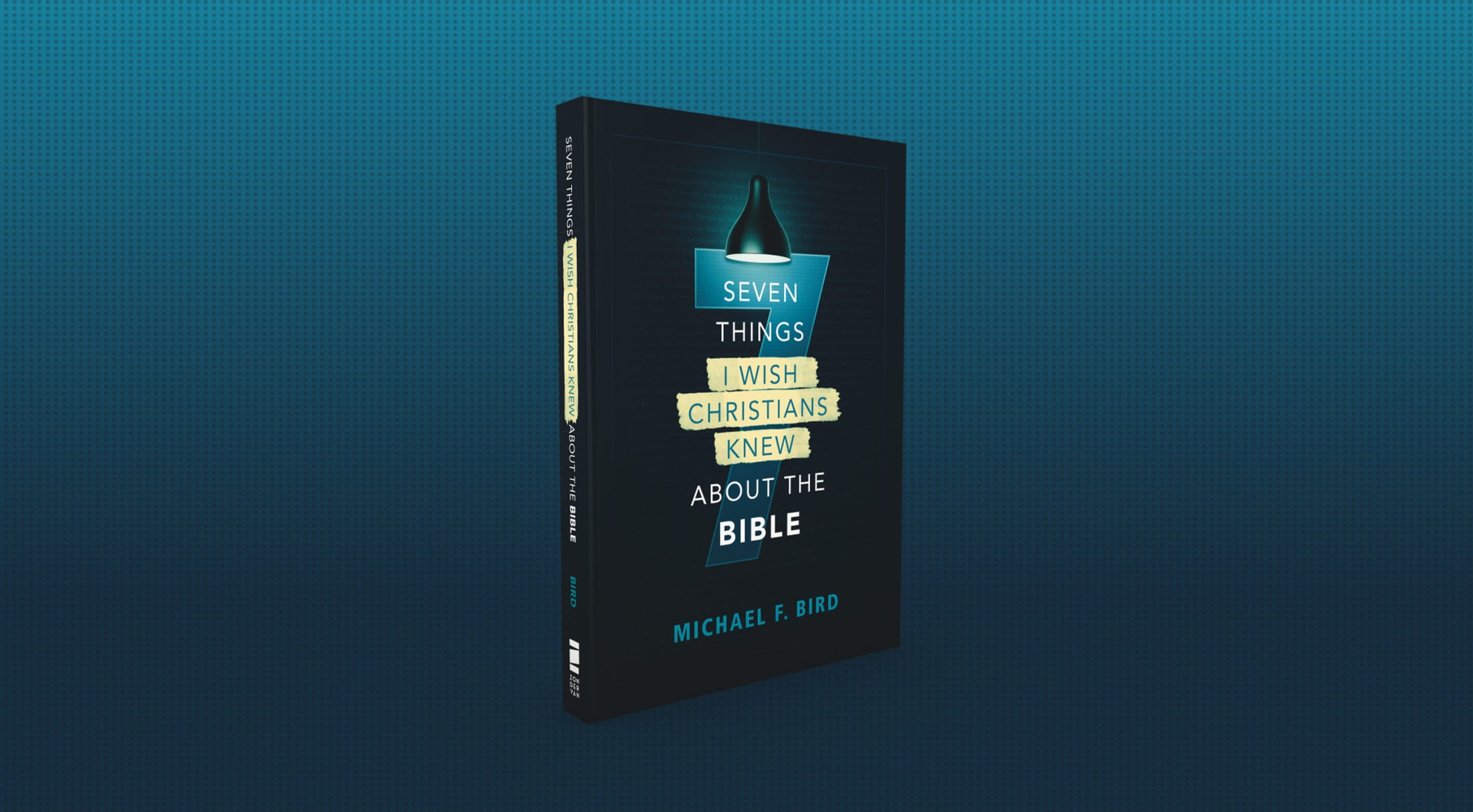Seven Things I Wish Christians Knew About the Bible
by Michael F. Bird
Zondervan, 209 pages
As evangelicals, we know we ought to read the Bible. We know we are called to preach from it, talk about it, and allow it to shape our beliefs, prayers, ethics, and practices. If pressed, however, I imagine many of us wouldn’t know how to articulate why we read it the way we do or even why we should revere it as holy Scripture.
Enter Michael Bird, an Anglican minister and New Testament scholar who serves as academic dean at Ridley College in Melbourne, Australia. His latest book, Seven Things I Wish Christians Knew About the Bible, seeks to “explain how to think about the Bible and how to get the most out of your Bible.” As the title suggests, Bird’s book contains seven chapters, each explaining an important idea related to the Bible that he believes every Christian “really, really, really needs to know!”
Chapter 1 provides a bird’s-eye view of how the Bible came to be, with an overview of the story of the Old and New Testaments, as well as the structural divisions contained therein. Bird briefly discusses the Apocrypha, how the specific biblical books were chosen, and the history of the English Bible.
The second chapter, “The Bible Is Divinely Given and Humanly Composed,” seeks to explain how Christians can affirm that the Bible is divinely inspired, unlike every other book, but written by humans, like every other book. He examines the concepts of infallibility and inerrancy, emphasizing the truthfulness and trustworthiness of Scripture.
Bird then considers the nonnegotiable authoritative nature of the Bible, writing that “one of the biggest challenges for the church today is not the erosion of inerrancy among millennial Christians… whether the Bible is in any sense authoritative at all.” While admitting that the Bible’s authority is “challenging and complicated,” Bird sketches “a nuanced view of biblical authority,” encouraging Christians to treat the Bible with an attitude of obedience toward it as God’s “normative” Word.
Chapter 4 delineates the importance of historical background in which Bird emphasizes that “even though the Bible is for us, it was not written to us, nor was it written about us” (96). He provides numerous examples of how a little background information can provide rich insight and better application.
Next Bird gives an overview of hermeneutics (the method of finding meaning in a biblical text), highlighting the importance of taking the Bible seriously over taking it literally. He provides his “C4” tips for biblical interpretation: 1) the importance of context; 2) the content of the text; 3) the main concern of the author in the text; and 4) contemporary application.
In the penultimate chapter Bird writes about the purpose of the Bible for the Church: to know God; deepen our faith; grow us in love for God and neighbor; and impart in us endurance and hope.
Finally, Bird demonstrates that Christ is the goal and center of the Bible and advocates that Christians read the Bible with this in mind as the apostles did. The book concludes with an appendix that discusses the top five Old Testament texts quoted in the New Testament.
The great strength of this book is that it effectively provides a Bible 101 course in under 200 pages that will enrich both new and lifelong Bible readers alike. I can’t think of any accessible book that better provides a comprehensive treatment of all things Bible: history, hermeneutics, authority, inspiration, truthfulness, and purpose—all while being practical, engaging, and laugh-out-loud humorous.
With quotes, charts, “did you know?” blurbs, excerpts of creeds and Christian documents, and recommended reading lists, this volume is packed with thought-provoking material, making it an ideal choice to stimulate conversation in book clubs and Bible study groups. While Bird certainly expresses his opinions (often quite strongly and humorously) he doesn’t steamroll the reader, inviting conversation rather than shutting it down.
I found Bird’s attitude toward the Bible to be refreshing in that it is thoroughly in line with historical orthodox theology and global evangelicalism without any of the stifling conservatism that emanates from the “battle for the Bible” attitudes found in pockets of American evangelicalism. Bird defends the truthfulness of the Bible without endorsing or participating in the “weird…bitter infighting” that accompanies “American evangelical’s fixation on inerrancy.” In this way, Bird’s Anglican and global perspective will likely be beneficial for North American evangelical readers.














